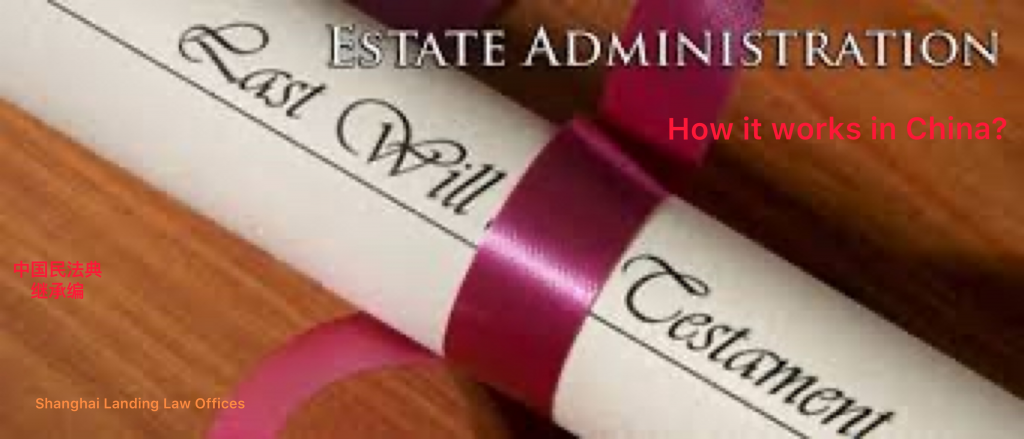It may sound surprising to you that in the past China laws have not recognized the legal standing of estate administrator or personal representative in court proceedings in relation to disputes over estate inheritance.
I. Case Facts
Just the other day, a Beijing district court tried and delivered a ruling in an inheritance case. The deceased was a young man who lost his parents when he was young and unable to live on his own due to chronical disease. His auntie, his mom’s sister, has ventured to take a good care of this boy, and even spent money to buy a property for this young man because the boy may marry someday. Unfortunately, this young man died at 30 without writing his own will. He has no legal heirs from any of the immediate family members as provided in China Civil Code. Since the deceased has no will, and no legal heirs, the estate property should pass to the state because of the intestate escheat principle.
II. Who Shall be the Defendant in Court Proceeding
The auntie, in the hope to prevent the escheat from happening, wanted to inherit or otherwise receive the estate which was originally bought with her money. You may have known the basic options of going about inheritance of estates in China: (1) inheritance by way of notarization at a notary office in China; (2) go to court and let the court decide on inheritance, even though there is no real dispute over the inheritance; and (3) in the case of inheriting real estates in China, do it yourself by appearing before and presenting documents to the real estate authority to have the title deed of the estate properties updated.
Since the Auntie is not a legal heir entitled to receive the estate property, she may only rely on the provision of Article 1131 of China Civil Code that she was the one who had been supporting and taking care of the deceased and thus entitled to receive appropriate share of the estate.
Article 1131 An appropriate share of the estate may be given to a person, other than a successor, who has been a dependent of the now decedent, or to a person, other than a successor, who has made considerable contributions in supporting the now decedent.
Article 1131 of China Civil Code availing non-legal heirs of the right to receive estate.
Here arises the problem. The auntie cannot resort to option (1) and (3) to claim the inheritance. She has to get the court to award the estate to her. Then who is the defendant to the contemplated inheritance lawsuit? Please take note China doesn’t have probate proceeding which is standard practice in my foreign jurisdictions.
This is often the problem in an inheritance case where the plaintiff may not find any defendant to sue.
Under the China Civil Code, the legal framework of estate administration is for the first time set up. In accordance with Article 1145, where the deceased has no legal heirs or all legal heirs choose to waive their right to inheritance, then the local civil affairs departments shall serve as the estate administrators. But China Civil Code has not expressly conferred the power to represent the estate or legal heirs, to the estate administrators. In judicial practice in the past, we have not heard any China court allowing an administrator to participate in inheritance court proceedings.
But in this case, the auntie chose to sue the local civil affair department in its capacity as the estate administrator for his nephew estate. Surprisingly enough, this Beijing district court has allowed the lawsuit to run its course to the very end.
III. Outlook for Estate Administrators’ Role in Inheritance Lawsuits in China
We noticed that the Beijing local court has made its proposal to local and higher civil affairs departments calling for further rules and guidance to be laid out for other civil affairs departments to follow in similar cases.
Actually, this development is anticipated and expected by many inheritance lawyers in China. Representation by estate administrator in dealing with interested parties of an estate is essential and efficient in solving many problems in relation to inheritance of estates in China.
We herald this new breakthrough in the practice of China inheritance laws.








Comments